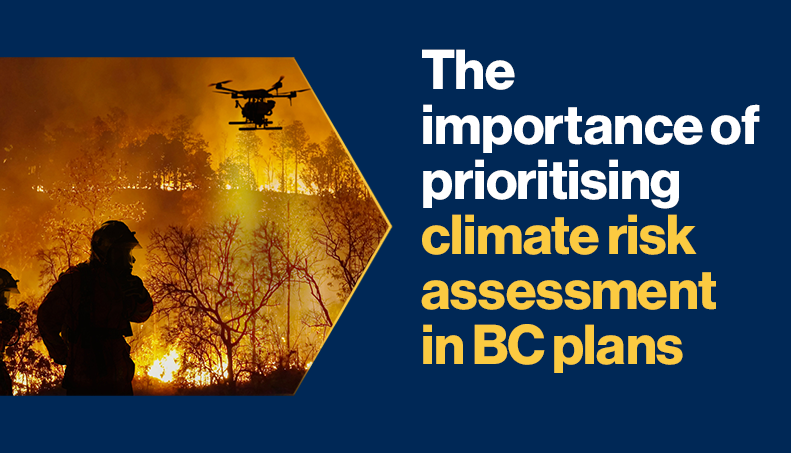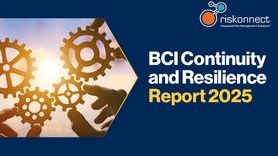Heatwave and wildfires in Spain: the importance of prioritising climate risk assessment in business continuity plans

In eastern Spain firefighters are currently attempting to contain wildfires that have destroyed thousands of hectares of land and forced residents from their homes. This is Spain’s third heatwave in the past two weeks and, as a result, much of the country is on red alert. Alongside Spain, current wildfire outbreaks are also blazing in Greece, Croatia, North Macedonia and Albania stoked by high winds, high temperatures, and weeks of drought.
A new study released on 24 June[1] suggests wildfire frequency and intensity has doubled in the past two decades. Also, in the UK, the newly released State of the UK Climate report 2023[2] indicates the UK’s climate is warmer, wetter, and hotter than ever before. These recent studies come as no surprise to business continuity practitioners across the globe who are increasingly aware of the effects of extreme weather.
Indeed, increases in climate threats are evident in research carried out by the BCI, which shows practitioners are experiencing rising disruptions from all types of weather events. In the BCI Extreme Weather & Climate Change Report 2023 44.4% of respondents to the survey said that they had seen a moderate or significant impact from climate-related events over the past five years, with adverse effects on supply chains, staff absence, temporary loss of premises, loss of power, and loss of revenue listed as their top concerns, but despite these wide-ranging impacts, just 22.1% of organizations represented in the survey considered climate risk on their risk agenda.
However, practitioners have noted rising organizational interest in extreme weather, in part, due to frequent climate-related news stories.
James Lodge, the BCI’s Operational Resilience Special Interest Group leader said:
“There has been a significant shift in people’s perception of climate risks. The constant stream of news about extreme weather events such as tornadoes, wildfires, and floods to name a few, has made these threats tangible and immediate. It's no longer abstract, with people often having first or second-hand experience of events. Through the media, people are seeing these disasters unfold in real-time, and the very real impact on human life.
As a result, there has been an increase in conversations about resilience measures as a result of extreme weather. With this awareness of personal impact comes a proactive approach, accountability, and ideas about how to prepare for and mitigate these risks. This heightened awareness is actively driving a more robust and collaborative approach and is fundamental to building organizational resilience.”
Although rising awareness of extreme weather events in organizations is encouraging for business continuity professionals, BCI research[3] indicates that practitioners want to see more action from governments and regulators. 52.0% of respondents consider the only way to make organizations address climate risk, and implement adaptation measures, is via regulations. Half of respondents advocated for climate risk to become part of regulatory requirements, and 49.0% for climate risk considerations to become a legal requirement.
With global weather-related events on the rise, and the increasing potential for adverse impacts on organizations, business continuity practitioners can advocate the importance of addressing climate risk to top management and conduct audits on not only their own premises, utilities, and staff wellbeing, but the risk of climate events to their global suppliers and transport networks too.
With the potential to cause long-term disruption to a number of critical services, climate risk is a prominent source of current, and future, disruption for global business continuity practitioners to mitigate.
James Lodge concludes:
“There is a rising tide of climate-related disturbances, and these are no longer far-off concerns but clearly on the horizon. Given their imminent presence, it is something that should be given immediate attention rather than put on a back burner. Business continuity professionals need to shift from reactive responses to more proactive response plans meant to anticipate and reduce these evolving risks.
Our job is not only to handle crises, but also to create strong, resilient businesses able to withstand the storms of tomorrow”.










































